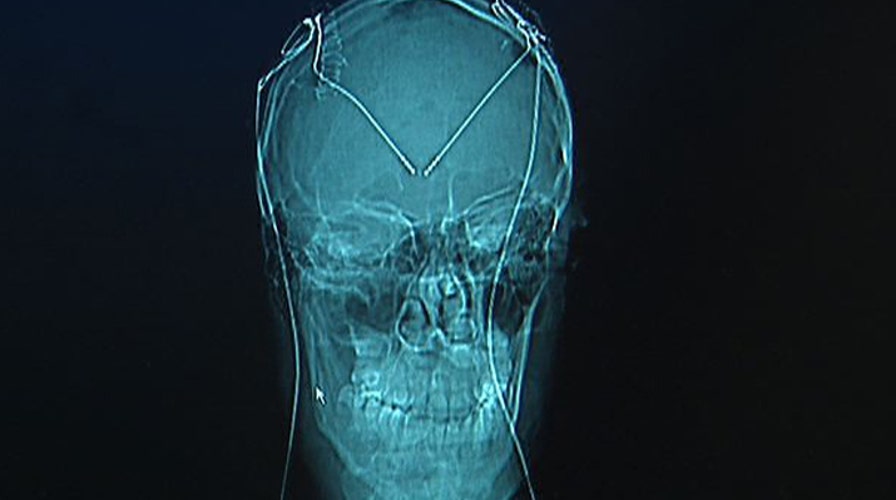Brain Surgery for Tourette’s
See how an experimental brain surgery has relieved extreme tics for one New York teen
For Robbie Lettieri, of Long Island, N.Y., driving a car means more than just joy-riding.
It’s a major accomplishment – because he never thought it would be possible.
But thanks to an experimental brain surgery, 17-year-old Robbie is living the life he always dreamed of.
At 9 years old, Robbie was diagnosed with Tourette’s Syndrome, a neurological disorder that causes involuntary physical and verbal tics. Nearly 200,000 Americans have Tourette’s Syndrome, and while there is no cure, doctors usually prescribe medication to treat the symptoms.
Robbie said he took more than 50 medications, including antidepressants, anti-hyperactive drugs and Botox to try and paralyze his muscles and nerves.
“It would basically feel like I was being controlled by a remote, because I was aware of everything that was going on, but I couldn’t control anything,” he said.
Often the medications came with bad side effects: Robbie said sometimes he would hallucinate or feel depressed, and he also gained weight. But none of the medications seemed to work.
His episodes started with small verbal tics, but they got so severe, he was pulled out of public school. He couldn’t be left alone and even broke several bones during convulsions.
“My body would just contort in all different ways that it shouldn’t, and my head would actually go past my feet,” Robbie said. “I would be hitting myself nonstop; my neck would just thrash – doing like every possible thing, and I couldn’t stop at all.”
Robbie’s mother, Debbie Lettieri, said it was like living a nightmare. Sometimes her son’s tics would last two to three hours.
“Towards the end, when it was really bad, it was just like living with constant knots in your stomach,” Lettieri said.
Lettieri said she knew her family couldn’t continue to live this way – and above all, neither could Robbie. Something had to give.
That’s when she took Robbie to see Dr. Alon Mogilner, a neurosurgeon, and Dr. Michael Pourfar, a neurologist at North Shore University Hospital in Manhasset, N.Y.
The doctors recommended Robbie have a procedure that requires surgically implanting electrodes deep into the brain.
The surgery was a way to stimulate Robbie’s brain. Deep-brain stimulation is most often used to treat epilepsy and Parkinson’s disease and manage depression. Currently, it is not FDA-approved to treat Tourette’s Syndrome.
The electrodes are connected to pacemakers, which are usually located in the chest, but for Robbie, they are located in his abdomen.
“These devices then provide weak electrical stimulation to different parts of the brain that are not functioning normally, due to a variety of diseases, and by providing this electrical stimulation, we can treat the symptoms of a number of diseases in patients who have severe symptoms that are not controlled by the usual medications,” Mogilner said.
Robbie realized there were risks involved with the surgery – but when it came down to it, he needed to try something different.
The surgery was a success – and now Robbie is set to take his road test – something that would not have been possible pre-surgery.
“He’s back to being happy and getting his confidence back and enjoying life,” Lettieri said.
Fox News' Jessica Ryen Doyle and Melissa Browne Weir contributed to this article.

